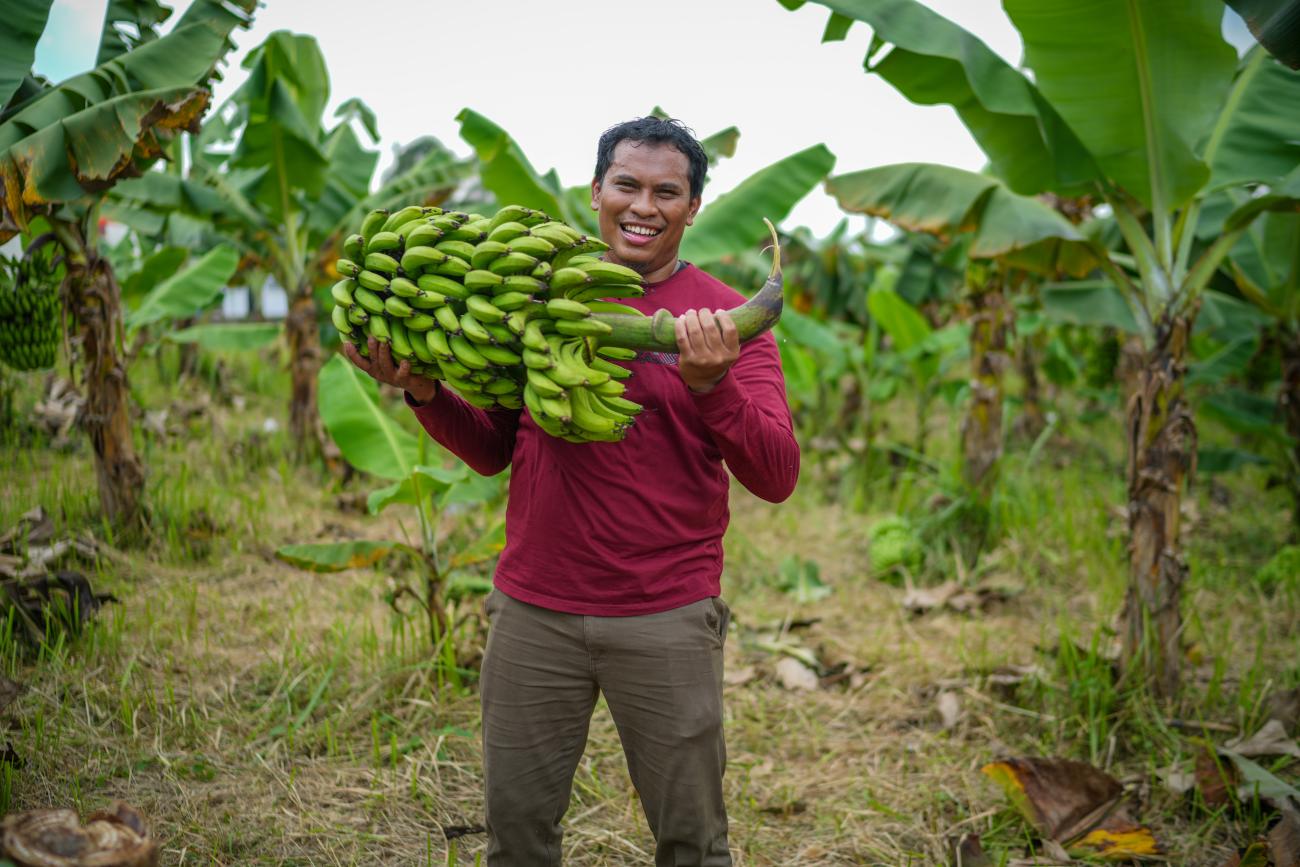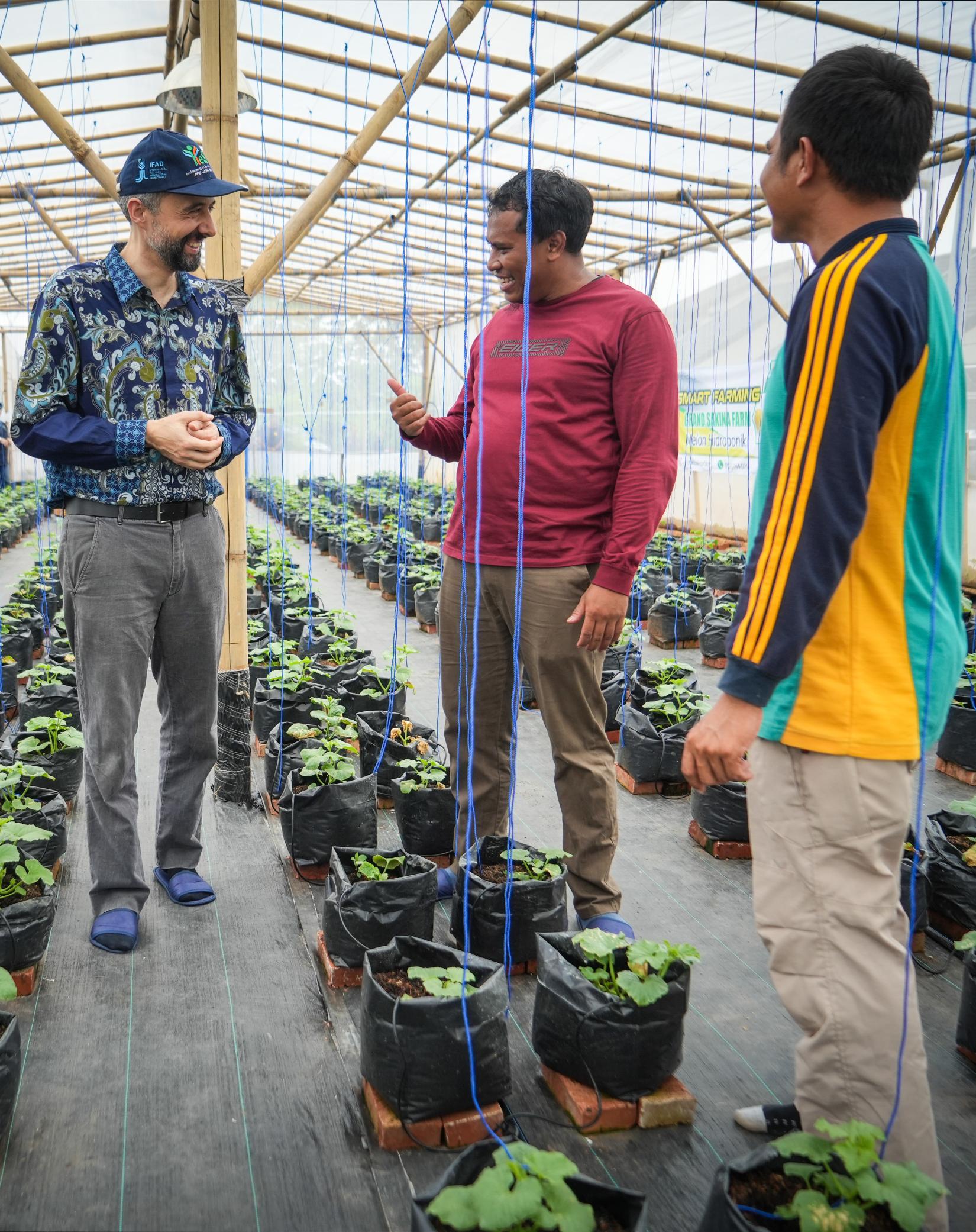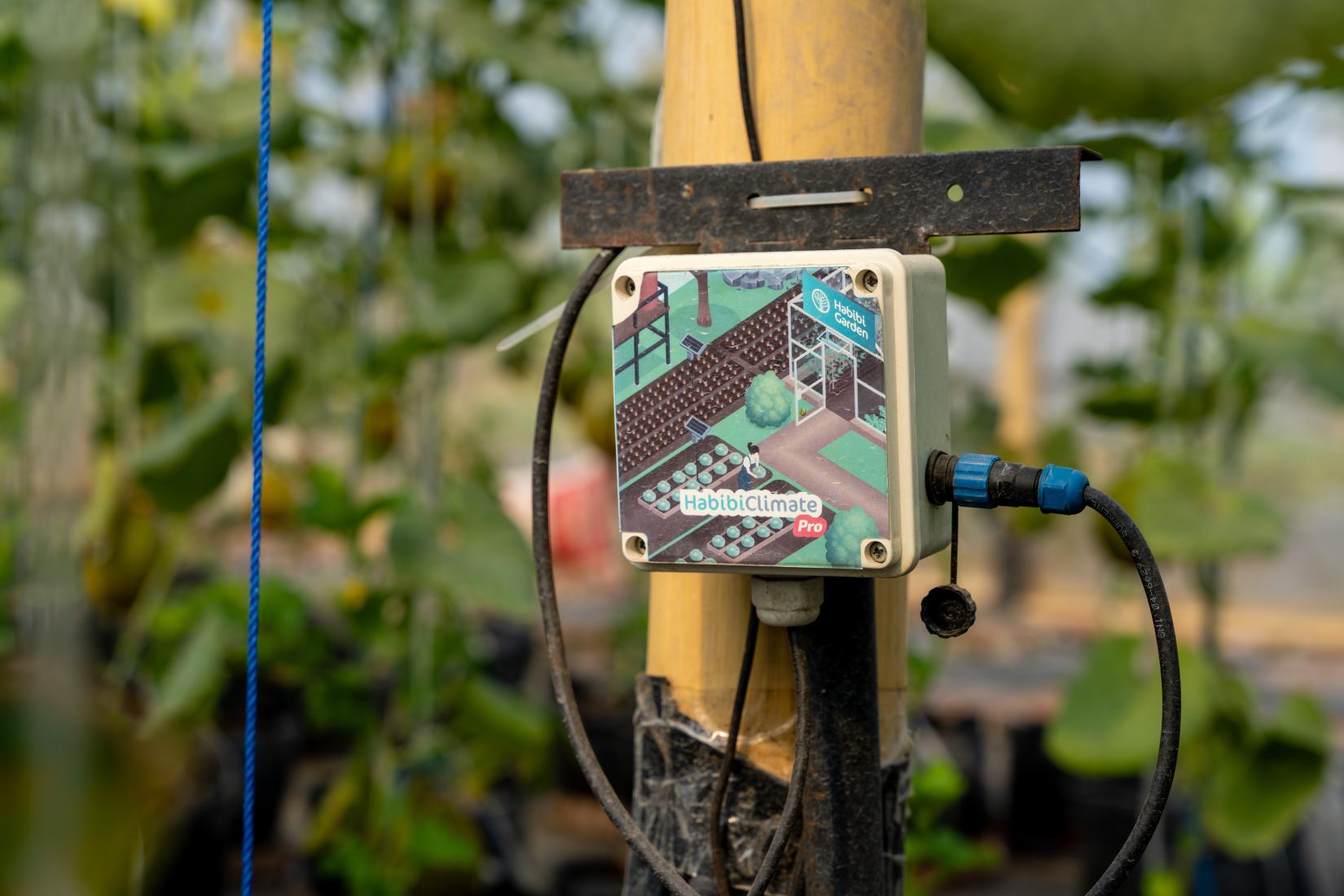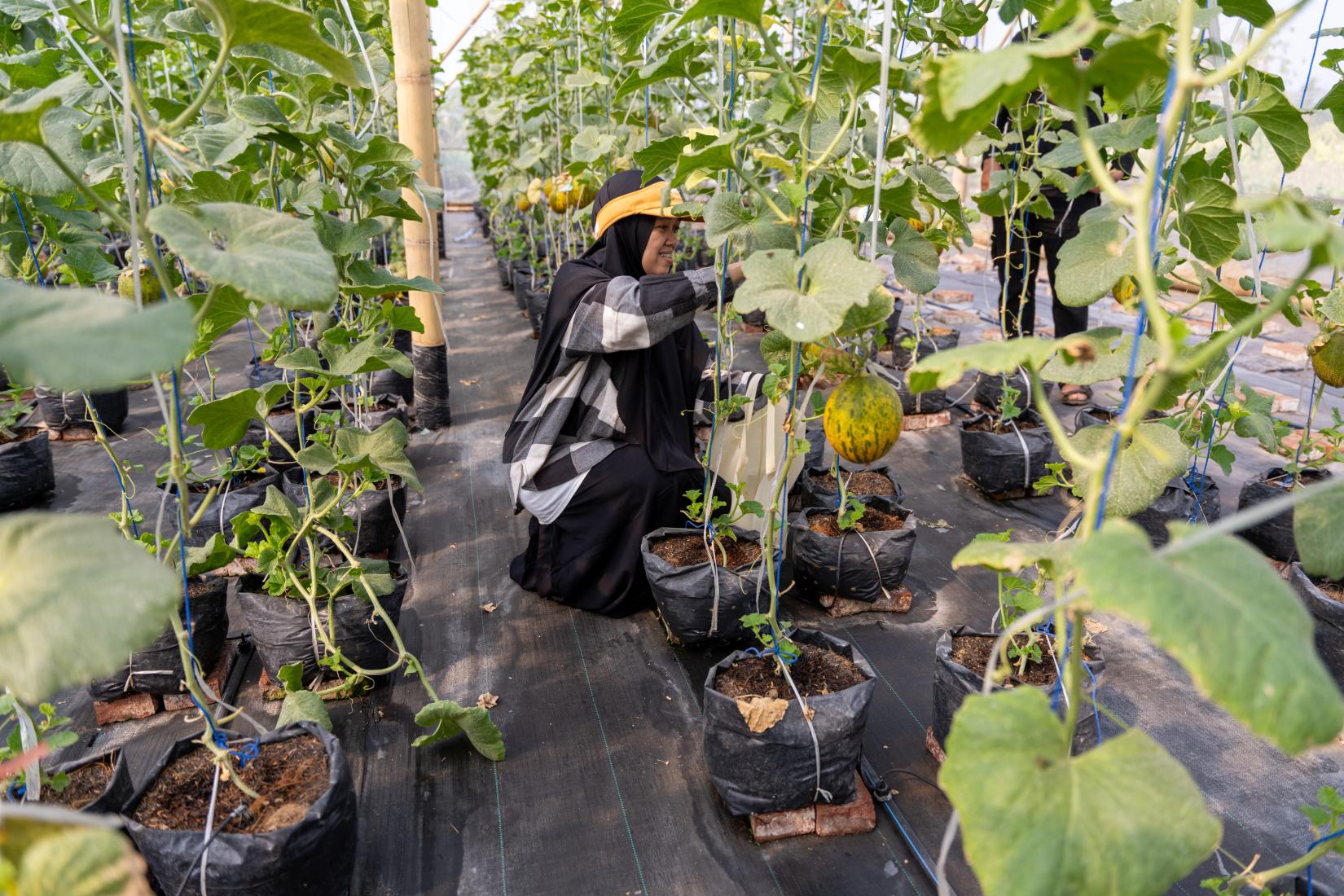How an Award-Winning Farmer Combined Agriculture, Tourism and Technology in West Java

-----
In Indonesia’s Subang Regency, West Java, entrepreneur Adimas Muhammad Wibisana is experimenting with an exciting new idea. He wants to tap into the agri-tourism potential of his greenhouse, which uses smart technology to produce cantaloupe melons, and bring tourists to experience life as farmers during a harvest season.
“Many young people associate farming with dirtiness and difficulty, but it doesn’t have to be like that” he says. “The greenhouse we’ve developed shows you can live close to nature, use cutting edge technology.”

It is Mr. Wibisana’s determination to realise ideas like this that won him a Youth Entrepreneurship and Employment Support Services Programme (YESS) competitive grant, co-financed by IFAD and Indonesia’s Ministry of Agriculture in 2022. The goal of the programme is to create opportunities for rural youth in the agriculture sector at a time when many rural youths are migrating to urban areas or overseas in search of better job opportunities. Although Indonesia’s agriculture sector has shrunk over the past 15-years in terms of its proportion of GDP contribution, agriculture remains the main source of income for about a third of Indonesia’s population of 270 million people, and 64% of the country’s poor people.
“Farmers like Adimas serve as an example to rural youth – showing them the benefits of the agricultural sector and that they too can play a role in transforming small-scale farms into sustainable agribusinesses,” said Anissa Pratiwi, Country Programme Officer at IFAD.
By 2025, the YESS programme aims to help 32,500 young people find employment in the agriculture sector, 33,500 young farmers and rural entrepreneurs increase their profits, and 50,600 young people gain a job in a new enterprise. It also aims to help 100,000 rural youth use financial services and an additional 120,000 receive financial education. As of June 2023, YESS had provided hands-on training to more than 30,000 rural youth, improving their financial literacy and agricultural business management skills, connected more than 750 apprentices to mentors, and awarded grants to 1,000 novice “agripreneurs”. A further 1,400 competitive grants were awarded to young people with good business proposals but limited access to loans and credit, to assist them in starting new agri-businesses.

A medical device salesman in his previous life, Mr. Wibisana only took up farming during the COVID-19 pandemic. The YESS grant has helped him deploy technology that cuts costs and improve labour-efficiency at his 1.3-hectare farm, where in addition to cantaloupes he grows cavendish bananas and other fruits and vegetables.
“When I got involved in agriculture last year, my first thought was to see how I can use smart farming techniques to grow our agri-businesses,” he said. Internet of Things applications help him with smart irrigation techniques, giving his crops just enough water at just the right time. His farm now produces up to two tonnes of fresh produce each month, and his success has attracted so much interest in smart farming that he plans set up an educational center that will teach his “agripreneurship” techniques to visitors from around the region.
The opportunity to inspire Gen-Z and show how it is possible to make a success out of farming provides ample motivation to keep growing, he says: “This farm is a prototype, a pilot project. If it is successful, we will add greenhouses and seek other investors."





